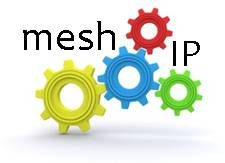 Apple Inc yesterday announced the coming of its cloud based platform, aptly dubbed iCloud. According to news reports, the web service will synchronise and coordinate shared content across all devices – a key element being its ability to stream music; in other words an all-new iTunes.
Apple Inc yesterday announced the coming of its cloud based platform, aptly dubbed iCloud. According to news reports, the web service will synchronise and coordinate shared content across all devices – a key element being its ability to stream music; in other words an all-new iTunes.
Following its hotly anticipated autumn launch, iCloud has the potential to revolutionise how music is acquired and distributed, offering a service to rival that of Google, Amazon, and Spotify in the UK. Given the huge success of its predecessor, it’s easy to imagine iCloud dominating the industry and becoming the go-to music source.
While MDs, FDs and other senior management will no doubt join up to the iCloud service for downloading their music in a heartbeat (after all, if you don’t have an iPhone, well…) it begs the question why owner managers are so seemingly reticent to use similar services within a working environment? Especially as most people have probably long been using ‘cloud’ based applications for business and leisure without even knowing it nor giving it a second thought.
Not farfetched
If you have a Hotmail, Gmail, Yahoo or other hosted email account and use downloaded resources such as Google Docs, you’re already on the cloud. When you think of it that way, becoming a fully fledged cloud convert by entrusting your work email and desktop to the ether suddenly doesn’t seem so farfetched. Especially when you consider that, up until the early 90s, the mainframe technology that most offices relied on was akin to what’s now being billed as ‘The Cloud’.
No applications were hosted on the user’s machine but accessed via a server in the corner of the room. The cloud works on the same principle – instead of sending your device into processing overdrive by running multiple programmes, your assets are held in secure data centres.
The greater peace of mind this delivers from a business continuity perspective is perhaps the strongest argument for making the switch (because your data is stored in at least two locations the chances of complete shutdown are almost negligible) but considerations such as running and environmental costs (cloud services are estimated to save at least £1 per day in electricity charges); more flexible working (the ability to access your documents from anywhere with an internet connection); and the option to determine individual user rights (restrict employee downloads, including social media activity and the extraction of confidential company documents) also make a compelling case for the cloud.
For start-ups too, the upfront savings on physical hardware and deployment make the cloud’s pay-as-you-go model a more viable IT infrastructure solution.
Security scare
What’s holding businesses back then? Recent high profile scares at Sony, Amazon and Google have raised concerns in the media about security on the cloud. But the reality is that cyber criminals are unconcerned where the data is hosted – many companies that have stored their data on-site rather than ‘in the cloud’ have suffered a similar fate. Hackers can only break through if the firewall software fails to prevent unauthorised users gaining access.
And seen as very few small businesses can afford the high-end security systems that protect specialist data sites, for SMEs, the cloud is certainly a safer place to store data.
The benefits of cloud computing far outweigh any outside chance of a security scare (and let’s face it, unless you’re in the same league as Sony you probably don’t feature too highly on the average hacker’s hit list).
Indeed, the fact that 70% of CIOs in public and private sector companies in the US, Europe and Asia, said that they were either using or planning to use cloud computing services for hosting their data and applications is testament enough to widespread business belief in the cloud and, closer to home, around 90% of our North West client base at Flexsys is considering moving their email – and at least 70% all their networking, data and applications – over to hosted services.
So, if you can’t beat them, should you join them? Perhaps when you’re downloading your holiday playlist consider what a move to the cloud could mean for you and your business. Because, to paraphrase our friends at Apple, if you’re not on the cloud, well, you’re not on the cloud…
- The Customer Edge Drives the Need for NaaS - June 25, 2023
- Blockchain Evolves And Secures - January 13, 2019
- Bessemer Ventures’ 2018 Cloud Computing Trends - February 25, 2018




